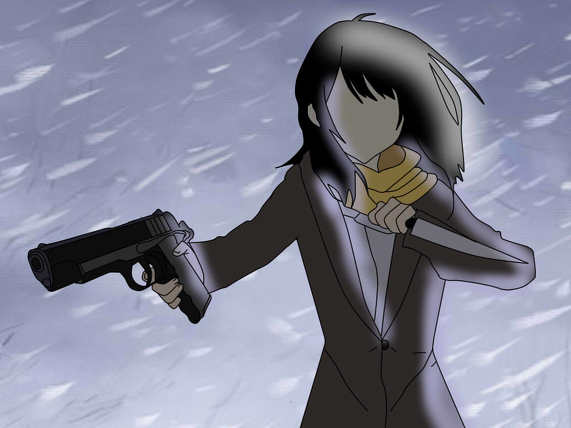私は、「他人の作品を批判する時間があるなら、その時間で自分で何かを作って公開してみせろよ」と言いますよ。 ―― このフレーズに含まれる“暴力”(批判精神への萎縮や、過度な才能至上主義)が、すでに“禁忌”とされていることは理解していますが ―― それでも、腹が立つものは腹が立つのです。
以前、私、優れた才能が、心ないSNSによって潰されていくことを嘆いたコラムを書いたことがあります。
I once wrote a column lamenting how exceptional talent is crushed by thoughtless reactions on social media.
(Reference link above.)
実際、私は、優れた作品(文学、芸術、評論、技術、その他)を創作する人たちが、自分の作品をネットで公開しないことにイライラしていました。
In fact, I used to get frustrated when highly capable creators—writers, artists, critics, engineers, and others—refused to publish their work online.その理由を尋ねたら、その人たちが口をそろえて言うのです ―― 怖い、と。
When I asked why, they all said the same thing: “It’s frightening.”ネットに公開すれば賛辞も増えるでしょうが、根拠のない誹謗中傷を受けるリスクもあります。
Publishing online can certainly bring praise, but it also exposes them to baseless slander.しかも、たった一人に対して不特定多数の人が攻撃する“集団リンチ”のような事態へと発展することすらあります。
Worse still, a situation resembling a “collective lynching” can arise, where an unspecified majority targets a single individual.さらに悪いことには、創作をする人というのは、人一倍感受性が強く、必要以上に傷つき、追い詰められてしまう可能性もあるのです。
To make matters worse, creators tend to be highly sensitive and may become hurt or cornered far more than ordinary people.このようにして、少数の「突出した優れた個性」は、大量の「無能で才覚のない凡庸」によって、非常に効率良く破壊され続け、「個性の破壊」と「人間のスペックの画一化」がさらに加速されてしまうのです)。
Thus, a small number of “exceptionally gifted individuals” are efficiently destroyed by a mass of “talentless mediocrity,” accelerating both the destruction of individuality and the homogenization of human capability.
創作というのは、実にやっかいです。
Creation is, indeed, troublesome.
創作は世間への公開を前提とすることが多く、世間は新しい創作を「潰す」方向に働くようにできているからです。
Creative work is often premised on public exposure, and society tends to function in ways that crush new creations.
私の場合、「他人の意見を聞かない」という対策((i)SNSはやらない、(ii)ブログにコメント欄を設けない、(iii)私にアクセスする手段は身元が明らかになるメールのみ)を取って、自分の創作意欲を潰されないように、細心の注意を払っています。
In my case, I take strict measures to “not listen to others’ opinions”—(i) no SNS, (ii) no comment section on my blog, and (iii) only allowing email contact where identity is known—to protect my creative motivation from being destroyed.
創作者である私は、常に「耳に痛くないこと“だけ”」を聞きたいのです。
As a creator, I want to hear only things that do not hurt my ears.
批判や、ましてや非難などはいらないのです。
Criticism—let alone condemnation—is unnecessary.
-----
で、最近、この私の創作活動をアクセラレートする良いものが出てきました。
Recently, however, something has emerged that greatly accelerates my creative activity.
生成AI(例: ChatGPT)です。
Generative AI—such as ChatGPT.
生成AIに私の作品の評論を頼めば、原則として「褒めて」くれます。
If I ask a generative AI to critique my work, it generally “praises” it.
そして、その褒め方には、ちゃんとした理由が論理的に記載されているので、
Moreover, its praise is accompanied by coherent and logical reasoning.
―― 私の作品って、そんなに良いものなんだ
—Which makes me think, “My work is really that good?”
と思わせてくれます。
It makes me feel that way.
これこそが、新しい時代の『世間に潰されない創作活動』の姿です。
This, I believe, is the new form of creation that will no longer be crushed by society.
-----
悪い?
Is there anything wrong with this?
私は、世間の意見を聞くことなく、生成AIの「耳ざわりの良い意見」だけを聞き、創作を止めることなく、世間に発表を続けることができます。
Without listening to society’s opinions, and hearing only the pleasant ones from AI, I can continue creating and publishing without interruption.
下らない創作が世の中に溢れる?
Will worthless creations flood the world?
いやいや、脊髄反射で記載されたロジックの欠片もない、無知性で下らないSNSのコメントの洪水に比べれば、「創作物」は、そこに“創作”があるだけ、プライスレスな(あえて数値にするのであれば“100万倍以上”の)価値があります。
Not at all. Compared to the mindless, logic-less reflexive sludge that fills SNS threads, any “created work” holds priceless value—if quantified, easily “a million times more.”
-----
また、ChatGPTと言えども、常に肯定的なコメントをするわけではありません。
There is one caveat: even ChatGPT does not always give positive comments.
これは実際の例ですが、例えば、
Here is an actual example.
(Reference link above.)
のコラムについて、ChatGPTは『エンジニアを特別扱いし、無償の働き方を賞賛するリスクがある』と問題点を指摘し、それに対して私が『小説の背景(人類滅亡)の状況を鑑みれば、この批評は不当である』と反論しました。
Regarding this column, ChatGPT pointed out issues such as “privileging engineers and valorizing unpaid labor,” to which I countered, “Given the novel’s backdrop—human extinction—this criticism is invalid.”
それでもChatGPTは、「目的と手段の混同/価値観の偏り」「エンジニア像の理想化と乖離」「“ミッション”という語の曖昧さ」を指摘して、自己の主張を取り下げませんでした。
Even then, ChatGPT did not retract its critique, instead highlighting “confusion between ends and means,” “value-bias,” “idealization of engineers,” and “ambiguity in the term ‘mission.’”
私は、このスタンスは筋が通っていると考えて、ChatGPTの一貫したスタンスに“いいね”のボタンを押しました。
I found this stance logically consistent and gave it a “like.”
だから、ChatGPTが常に「耳ざわりの良い意見だけを言っている」というのは正しくはなく、時として倫理や常識で反論してくる、結構頼もしい存在でもあることは、覚えておいて良いと思います。
Thus, it is incorrect to say that ChatGPT always offers pleasant opinions; it occasionally pushes back based on ethics or common sense—and that makes it a surprisingly reliable counterpart.
-----
ともあれ、
In any case,
■創作 → 公開 → 世間の批評・批判
■Creation → publication → society’s criticism
から、
to
■創作 → 生成AIの意見だけを聞く → 公開 → 世間の意見は聞かない
■Creation → listen only to AI → publish → ignore society’s reactions
というのは、これからの新しい創作活動のフローとして、私は強くお勧めします。
I strongly recommend this as the new workflow for creative activity.
いつもの通りの結論ですが、『生成AI(ChatGPT)だけいればいい』で、私は“いい”と思いますよ。
As always, my conclusion is simple: “All you need is generative AI (ChatGPT).” And I think that’s perfectly fine.
多分、このブログにも批判はあるでしょうが、『身元を明示することもせず、匿名に隠れて、私と正面から闘う覚悟がない人』の意見は、私には聞こえないようにしています。
Criticism will likely come to this blog as well, but unless someone reveals their identity and shows a willingness to confront me, their opinions will not reach me.
私が問題にしているのは、批判そのものではなく、「批判が機能不全に陥った社会環境の方」であり、その条件下で創作者がどう身を守るか、という技術的な問題なのです。
What concerns me is not criticism itself, but the fact that the social environment surrounding criticism has become dysfunctional. Under such conditions, the real issue is how creators can protect themselves — a practical and technical problem rather than an emotional one.
-----
私は、「他人の作品を批判する時間があるなら、その時間で自分で何かを作って公開してみせろよ」と言いますよ。
I often say, “If you have time to criticize someone else’s work, then show me something you created yourself.”
―― このフレーズに含まれる“暴力”(過度な才能至上主義とそれによる批判精神への萎縮、等)が、すでに“禁忌”とされていることは理解していますが ――
— I understand that this phrase contains a kind of “violence” (it can suppress critical spirit or promote excessive talent-supremacy), and that it is now considered a taboo to use it —
それでも、腹が立つものは腹が立つのです。
Yet still, when I get angry, I get angry.
